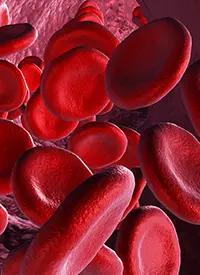Maintenance Ibrutinib Leads to High PFS, OS Rates in MCL After Frontline Induction Therapy
Maintenance ibrutinib following frontline induction therapy was proven to be effective in patients with treatment-naïve mantle cell lymphoma , according to findings from a phase 2 trial published in Blood Advances.

Maintenance ibrutinib (Imbruvica) following frontline induction therapy was proven to be effective in patients with treatment-naïve mantle cell lymphoma (MCL), according to findings from a phase 2 trial (NCT02242097) published in Blood Advances.
At a median follow-up of 55.7 months, patients with MCL who achieved a complete response (CR) or partial response (PR) to frontline chemoimmunotherapy with or without autologous stem cell transplantation (ASCT; n = 36) achieved a 3-year progression-free survival (PFS) rate of 94% and 3-year overall survival (OS) rate of 97%. The 5-year rates were 89% and 91%, respectively.
“We demonstrated that fixed duration ibrutinib maintenance at a dose of 560 mg daily for 4 years was feasible in patients with MCL who respond to frontline chemoimmunotherapy with or without ASCT,” investigators wrote.
The multicenter study enrolled patients with MCL who received a minimum of 4 cycles of induction therapy of either R-CHOP (with or without cytarabine-containing cycles), R-HyperCVAD, or bendamustine (Bendeka) plus rituximab (Rituxan). Consolidation with ASCT by investigator assessment prior to enrollment was permitted and patients with underlying hypertension or atrial fibrillation could be enrolled if the investigator deemed their condition to be well controlled. The final dose of cytotoxic chemotherapy had to be given at least 14 days but no more than 120 days prior to enrollment; patients who received ASCT consolidation had to display engraftment and meet required baseline hematological parameters before enrollment.
Ibrutinib maintenance was given as a single agent at a dose of 560 mg once daily for a fixed duration of 4 years. Patients were evaluated for the first 6 months of treatment, then every 3 months subsequently for up to 4 years. Those who discontinued treatment continued with survival follow-up for up to 4 years after the first dose of ibrutinib. Off-treatment patients received follow-up every 3 months for a maximum of 2 years, then every 6 months for a maximum of 4 years after the first dose of ibrutinib.
The primary end point was 3-year PFS rate, defined as the absence of disease progression or death from any cause from the start of ibrutinib maintenance therapy. Secondary end points consisted of OS, safety, and characterization of PR to CR conversions during ibrutinib maintenance.
At baseline, the median patient age was 60 years (range, 46-90). Most patients were men (78%), had stage III or IV disease (78%), had an ECOG performance status of 0 or 1 (94%), did not have extranodal disease (75%). Fifty percent of patients received ASCT consolidation prior to enrollment and induction therapy consisted of bendamustine plus rituximab (47%), R-HyperCVAD (25%), Nordic Regimen (19%), R-CHOP/DHAP (6%), and R-CHOP (3%).
Among 22 patients who were evaluable for minimal residual disease (MRD) after induction, 77% were MRD negative, 5% were MRD positive, and 18% were MRD indeterminate. Prior to enrollment, the best responses to induction therapy were 34 CRs and 2 PRs.
Forty-seven percent of patients completed their full course of ibrutinib maintenance. The median number of treatment cycles was 37.5 (range, 2-52). Most patients (69%) completed at least 2 years of maintenance therapy and all patients eventually discontinued treatment with ibrutinib. Subgroup analyses revealed that no difference in PFS or OS was observed between age groups (< 65 vs ≥ 65; P = .2) or MIPI score (low vs intermediate vs high; P = .7). Among patients who received ASCT prior to enrollment (n = 18) the 5-year PFS rate was 100% vs 77% for those who did not (P = .04); the 5-year OS rates were 100% vs 83% (P = .07).
Additional findings from the study demonstrated that following ibrutinib maintenance there was 1 PR conversion to CR and 1 patient experienced progressive disease; 35 patients were in continued CR at the time of last assessment. Results from exploratory MRD assessments showed that among patients who were MRD negative prior to ibrutinib maintenance, 6 became MRD positive within 2 years of starting ibrutinib treatment.
In terms of safety, the most common any-grade treatment-related adverse effects (TRAEs) were infection (86%), lymphopenia (81%), leukopenia (72%), diarrhea (67%), and thrombocytopenia (64%). Commonly occurring grade 3 or 4 TRAEs included lymphopenia (58%), neutropenia (36%), and decreased neutrophil count (36%).
Temporary dose interruptions due to TRAEs were reported in 14 patients. Permanent dose reductions due to TRAEs occurred in 25% of patients and 42% of patients permanently discontinued ibrutinib maintenance due to TRAEs. Four patients discontinued treatment for reasons besides toxicity.
Three patients died during ibrutinib maintenance and 1 was lost to follow-up. Two of the deaths during maintenance were deemed to be unrelated to ibrutinib, consisting of aspiration pneumonia and a second malignancy, and 1 patient died of an unknown cause.
“Toxicities including rates of high-grade atrial fibrillation/flutter and hypertension were consistent with ibrutinib’s known safety profile. Further studies evaluating maintenance as a shorter course or the use of next generation BTK inhibitors as alternatives to ibrutinib should be explored as they may mitigate toxicity,” study authors wrote in conclusion.
Reference
Karmali R, Abramson JS, Stephens DM, et al. Ibrutinib maintenance following frontline treatment in patients with mantle cell lymphoma. Blood Adv. Published online September 27, 2023. doi:10.1182/bloodadvances.2023011271



